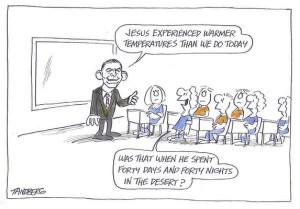My grandpa is a man of habit. Without fail, come 6:00 am on a weekend visit (when even the resident magpies are only just greeting a new day) the thunderous beat of military marching music compiled from the centuries reverberates down the hallway. This rude awakening, mischievously rousing all sleeping souls to consciousness, is followed by a perfectly cooked cheese soufflé for breakfast, made light and fluffy in an attempt to soften the trauma of reveille. Grandpa is also a man of firm beliefs; the youth of today are lazy, technology (especially the mobile phone) is distracting, and climate change is a political hoax.
While the former two may be considered blatant subjectivity, the last notion holds a more substantiated truth. In a superficial global media environment in which ‘objective truth’ appears to increasingly be an ideal rather than an attainable reality, fair and balanced reporting of such issues is often overshadowed by political and economic agendas. Climate change reporting in Australia certainly follows this trend, reported through the lens of politicians, pundits and commentators who frame the issue as a political conflict rather than a matter that requires an urgent, global-scale response. In an attempt to present an ‘objective’ view on climate change that is in line with journalism ethics of being “honest, fair and courageous in gathering, reporting and interpreting information” (reading), an ironic conundrum has become apparent in associated media reporting. Over 90% of scientists worldwide agree that climate change is real. And yet the documentary A Burning Question, reveals that the media remains contradictory in its reporting of the issue by utilisinga form of informational bias known as ‘false balance’.
Evidence of climate change is now undeniable. Rather than addressing active responses to the issue, the media is stagnating in itsexploration of authenticity.For this reason it is little wonder that my grandpa, along with many others, remains sceptical of climate change. A balanced media perspective on the issue justifies this scepticism; however this approach needs to altered. Rather than those who hold the power to enact real change using climate change as a political tool for self-promotion and controversy, the media needs to address its pressing implications, such as the imminent effect of climate change on small island states in the Pacific.
While a healthy media should strive to present news with objectivity and balance, the reporting of climate change needs to be converted from a heated debate to a considered response.
